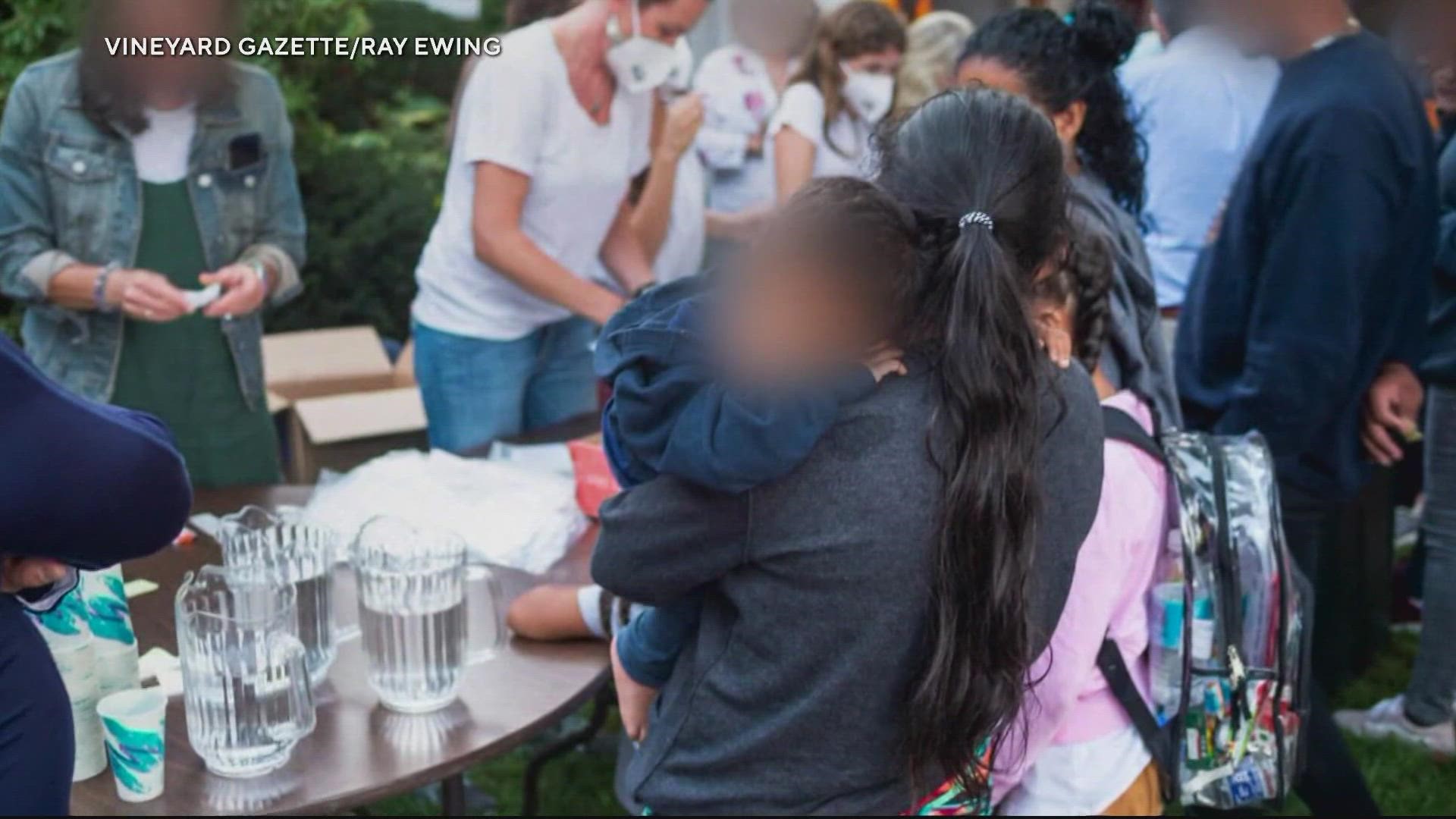WASHINGTON — As Arizona, Texas and now Florida continue to send more asylum seekers to communities in the Northeast and Midwest, some people want to know: is that legal?
Experts say the answer is unclear.
Texas and Arizona first started busing people from Mexico, the Caribbean, and South America, to the District of Columbia, in April. So far, D.C. has received more than 9,000 migrants from those two states.
Florida Governor Ron DeSantis announced Wednesday he also chartered flights for dozens of migrants to Martha’s Vineyard, in Massachusetts, as part of an effort to transport migrants to so-called “sanctuary states”.
Both Texas and Arizona have claimed the asylum seekers who have gotten on their charter buses for places like D.C., New York City, and Chicago have done so voluntarily.
However, both bus passengers and local politicians have claimed they are being misled into making trips elsewhere in the country.
On Thursday, some of the people bused to D.C. from Texas told WUSA9’s Rafael Sanchez-Cruz that people without badges, on the ground in El Paso, were telling them they would be assisted to get to other locations in the US once they arrive in D.C.
In July, a mother said a Texas official in San Antonio told her if she boarded a bus to the nation's capital, people in the District would be able to provide her a bus ride or flight to Chicago.
"It was all a lie," the woman said.
Both the Texas and Arizona governments immediately denied those claims.
“The only lie is the Biden Administration telling the American people that our border is closed,” a spokesperson for Texas Governor Greg Abbott said. “President Biden’s open border policies have created an ongoing humanitarian crisis, with record-high illegal crossings and deadly drugs like fentanyl flooding into our state.”
A spokesperson for Arizona Governor Doug Ducey also said no workers employed by his state lied to migrants back in July.
“If anyone is being misled, we certainly want to know about it,” said Ducey’s communications director CJ Karamargin.
US Customs and Border Protection did not comment on those claims, earlier this summer. WUSA9 has reached out to the agency for comment once again.
Dr. Alberto Benítez serves as a professor of clinical law and the director of the immigration clinic at the George Washington University Law School Immigration Clinic.
He said misleading asylum seekers to get on buses could be considered fraud, but it is still hard to definitively declare such action illegal.
“It depends on who is being harmed, who is doing the harm,” Benítez said. “Is it the states of Massachusetts or D.C. [being harmed]? What was told to these non-citizens? Who told them that? Did they have the authority of the governors of Florida, Texas, and Arizona behind them when they were making these representations? There's so many facts that are just not known right now.”
However, Benítez said it was clear many asylum seekers are being placed in potential legal peril individually.
He said when asylum seekers are detained by Customs and Border Protection [CBP] officers or Immigration and Customs Enforcement [ICE] they are served a charging document that is a notice to appear in immigration court. This typically begins the process for migrants seeking protection in the United States and regularizing their status legally.
Benítez said if migrants are not receiving a summons, are being sent to places far away from asylum offices, or do not know the asylum rules in the country they will likely not receive those legal opportunities.
“To use Martha's Vineyard, as an example, they would have to find the closest asylum office and know to go there and know how you have to apply for asylum, which is not at the asylum office,” he said. “You have to mail [the asylum application] to another office to start the process. That's usually started at the border.”
Ultimately, Benítez says it is up to the U.S. lawmakers on Capitol Hill to come up with a solution to solve the border crisis. He said executive actions are only short-term solutions and have recently proven to be harmful to migrants seeking assistance.
One thing is for sure, however. Benítez said he stands firmly against the actions being taken by Florida, Arizona and Texas.
“If being a nasty individual was a crime, the governors of these three states would be guilty,” he said. “We could talk about the law, we can talk about the policy. But, clearly, these individuals are playing with human lives.”

